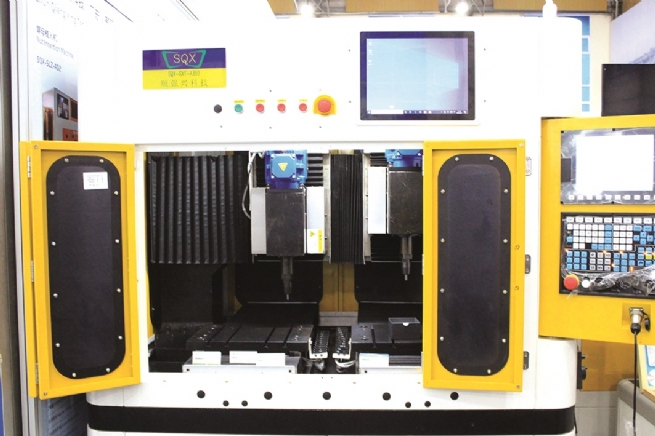Businesses Invest Heavily in AI Infrastructure in Vietnam
NVIDIA, Qualcomm, and FPT are investing heavily to build chip factories and AI data centers in Vietnam, marking a new era for the country’s artificial intelligence (AI) industry.
The surge in AI infrastructure investment is transforming Vietnam’s technology sector. Rather than focusing only on software as before, major corporations are now concentrating on chips, Graphics Processing Unit (GPU) clusters, and dedicated data centers, which serve as the foundation for expanding high-tech supporting industries.

Illustrative photo
Race to build AI infrastructure
At the recent GM Vietnam 2025 – Vietnam Blockchain Week event, Mr. Truong Gia Binh, Chairman of FPT Corporation, explained that Vietnam is following a sustainable development strategy driven by three major global transformation forces: digital transformation, green transformation, and AI transformation. This embodies the core spirit of Resolution 57-NQ/TW.
FPT formed a comprehensive strategic partnership with NVIDIA to jointly advance AI research and deliver services and solutions to customers in Vietnam and worldwide.
Furthermore, at the end of 2024, the Vietnamese Government and NVIDIA signed a cooperation agreement to establish the Vietnam Research and Development Center (VRDC) and an AI Data Center in Vietnam. These provides an important foundation for progressing the research and development of advanced AI technologies in the country. NVIDIA’s AI support will help Vietnam achieve its broader high-tech industry goals, specifically in AI, and also help position Southeast Asia as an innovation hub.
In June, Qualcomm opened an AI research center in Hanoi focused on processors for smartphones, electric vehicles, and IoT devices. The center designs energy-efficient processors with built-in AI for consumer products. This is Qualcomm’s first AI hardware development center in Southeast Asia, highlighting Vietnam’s emerging role in the global supply chain.
“The opening of the center demonstrates our long-term commitment to supporting breakthrough research and talent development in Vietnam, while also contributing to Vietnam’s journey to becoming a hub for advanced technology innovation,” said Alex Rogers, President, Qualcomm Technology Licensing & Global Affairs.
Vietnamese companies enter the race
Law on Digital Technology Industry 71/2025/QH15 was passed by the 15th National Assembly on June 14, 2025, marking a strategic breakthrough for the digital technology industry. More than just a specialized law, the Law on Digital Technology Industry is expected to act as an institutional lever for national digital transformation. Alongside this is Decision 1131/QD-TTg, a strategic push to designate AI as one of 11 national priority technologies.
Mr. Truong Gia Binh also shared that, for FPT, this is a boost to a long-nurtured dream of mastering core technology. The FPT AI Factory, the first AI factory in Vietnam, is a step toward realizing that dream: a place that gathers data, algorithms, talent, and ambition, transforming Vietnamese intelligence from ideas into products of national significance. Starting with the AI Factory, FPT is not choosing a safe path but treating AI as a “strategic bet,” investing directly in core capabilities, building computing infrastructure, and developing an open ecosystem to serve not only itself but also empower the entire business community. From a five-person startup to a corporation with thousands of employees, anyone can access the platform and create their own AI solutions.
With an investment of US$200 million announced in April 2024, FPT is not building another traditional data center but creating an “intelligence factory,” a place that does not produce hardware or retail software but instead delivers what the future digital economy requires: computing power, language models, and intelligent agents (AI Agents).
Vietnam is developing an AI ecosystem closely linked to hardware. Viettel has successfully tested domestically made 5G chips capable of processing over one trillion operations per second, directly competing with imported chips. VinAI has created a smart driving assistance system integrated directly into specialized processors, now deployed in VinFast VF e34 electric vehicles. FPT Smart Cloud has applied Vision AI in factories, cutting product inspection time from three minutes to three seconds.
The demand for hardware is fueling a race to train talent. Vietnam aims to educate 100,000 AI and semiconductor engineers by 2030. Hanoi University of Science and Technology has launched a specialized microchip program, while FPT University has partnered with NVIDIA to implement hands-on training programs using real GPUs.
The boost from hardware infrastructure will allow Vietnam’s AI sector to end dependence, develop high-tech supporting industries, and, once major projects are operational, transform the country into a center for creating and deploying AI models for practical applications with clear technological sovereignty and global competitiveness.








